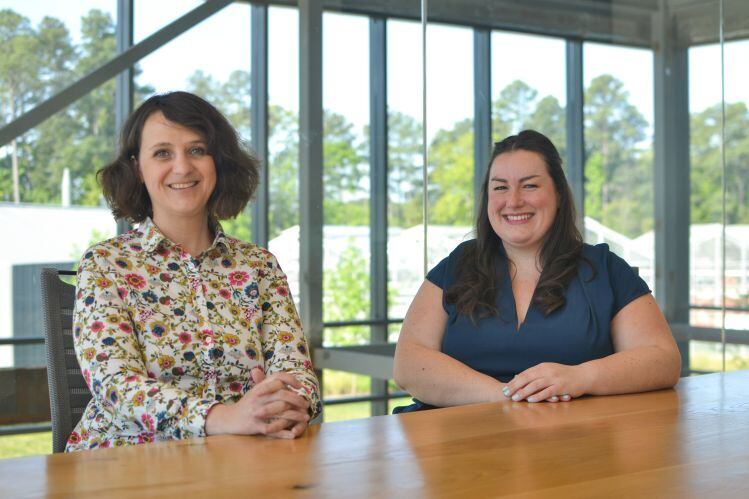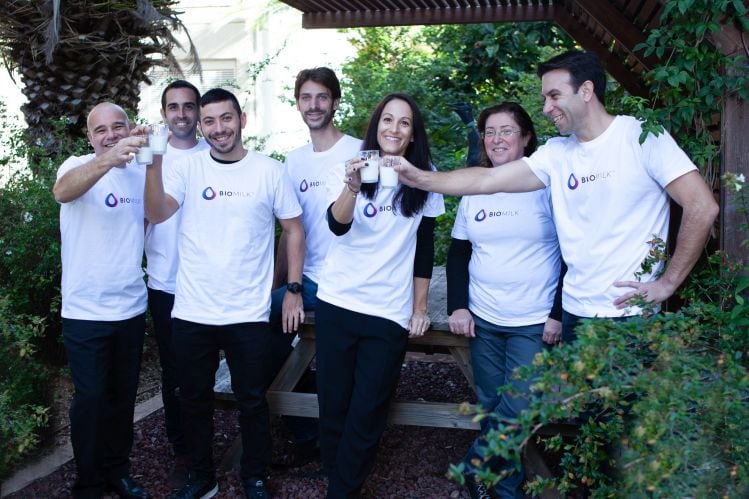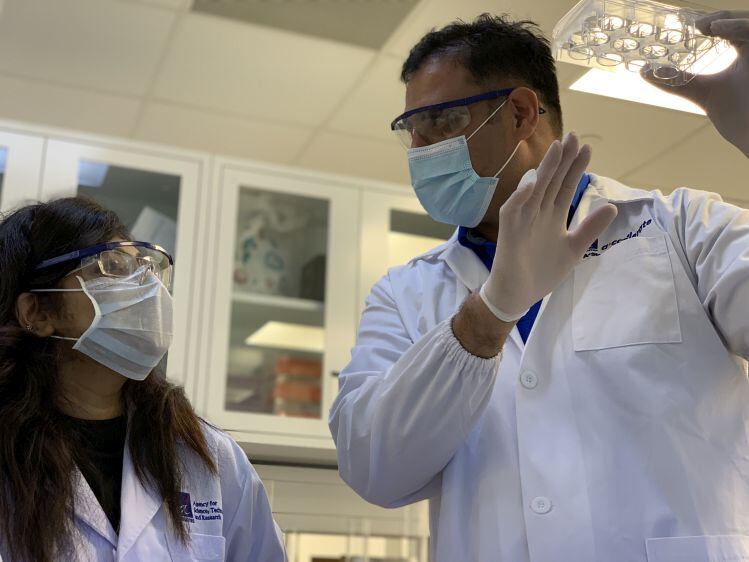Co-founder and CEO Michelle Egger told FoodNavigator-USA: “We’re probably about a year from a whole human milk product that could go into market, but we have a heck of a lot of regulatory work ahead of us before that point. We’re very focused on bringing whole human milk to market direct to consumer.
“We’re still in discussions with regulators to figure out the right categorization and way to talk about this product. Is this an infant nutrition product, is this a milk product? It’s an interesting and challenging question that I don't think we still have a perfect answer for yet," added Egger, a food scientist by training who spent the first part of her career at General Mills.
She added: “One problem is that breast milk has never been characterized or defined, so we're in a place where our comparator doesn't have its own compositional limits or data points set around it.”
‘We’re a huge step closer to empowering parents with another infant feeding option’
Cell-cultured milk is not designed as a replacement for breastfeeding, but offers a better option than soy- or cow's-milk-based formulas for the four fifths of women who transition to formula before the recommended six-month exclusivity period for breastfeeding, but aren’t always happy about it, says BIOMILQ, founded by Egger and cell biologist Dr Leila Strickland in late 2019.
“We can now confirm that BIOMILQ’s product has macronutrient profiles that closely match the expected types and proportions of proteins, complex carbohydrates, fatty acids and other bioactive lipids that are known to be abundantly present in breastmilk.
“We’re a huge step closer to empowering parents with another infant feeding option, one that provides much of the nutrition of breastmilk with the practicality of formula,” added Strickland, a cell biologist who started thinking about whether she could make ‘real’ human milk from cells after struggling to breastfeed.
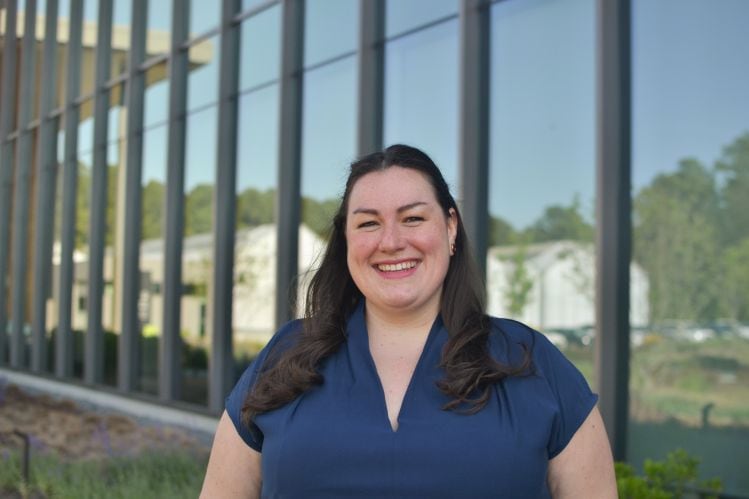
‘We’re not creating a handful of components like many players in this space…’
While some companies are using microbial fermentation (engineering yeast, bacteria, algae or fungi) to produce individual components in breastmilk such as lactoferrin or human milk oligosaccharides (HMOs) such as 2’-FL that can be added to existing infant formula products; cell-cultured breastmilk gets us closer to the real thing by essentially replicating the mammalian milk production process.
Put simply, this means taking cells from mammalian mammary glands, keeping them happy so that they proliferate, and then triggering them to differentiate and start producing milk.
“We’re not creating a handful of components like many players in this space,” said Strickland [echoing comments from Israeli cell-cultured milk startup BioMilk, which notes that ‘there are 200+ oligosaccharides in breast milk; using fermentation, you can make maybe 10 of these’].
“We believe human milk is a complex biological system and should be brought to the world as a whole milk product that maintains the integrity of it’s incredible evolutionary origin.
“In our proprietary lactation system, our cells are making numerous HMOs, including those unexplored, such as one that was recently found to correlate with speech acquisition."
'It’s not bio-identical to mother’s milk, we’re not confident it can be'
“But let’s be clear,” added Strickland, if you grow cells in a bioreactor rather than the human body, the inputs - and therefore the outputs - are not going to be exactly the same, as for a start, the cells are not be exposed to all of the components circulating in the mother’s blood, so BIOMILQ’s milk won’t contain immunoglobulins, for example.

“It’s not bio-identical to mother’s milk, we’re not confident it can be. Hormonal changes, baby’s cues, skin-to-skin contact, and environment all affect the dynamic complexity of breastmilk.”
With that said, she added, “The full complement of HMOs and other bioactives in our product will support immune development, microbiome population, intestinal maturation, and brain development in ways that bovine-based infant formula fundamentally cannot.”
'Our unit economics are better than most of those in the cultivated meat space'
If all this is sounding, well, pretty pricey, you’d be (pleasantly) surprised, said Egger, who points out that unlike cell-cultured meat - where the cells themselves are the end product, and manufacturers will have to work out how to grow and feed billions of them cost effectively – BIOMILQ’s cells are mini factories that churn out milk.
Plus, BIOMILQ won’t have to worry about scaffolding, or working with multiple different cell types, while the regulatory pathway may potentially be simpler than it is for cell-cultured meat, she said.
"Our unit economics are better than most of those in the cultivated meat space and our scale up is more achievable, as we're not trying to constantly regrow cells,” Egger told FoodNavigator-USA. “Some of the cells we’ve looked at can produce milk for months and months.”
As for growth media costs, she added: “We think we’re in a space where we may be competitive with infant formula at the point that we launch on a retail basis … so mammary cells, at the point where they begin to lactate, they don't require as high of a nutrient burden [as cell-cultured meat], at that point they're really delighted to be able to just be fed, happy and warm, and produce milk.”
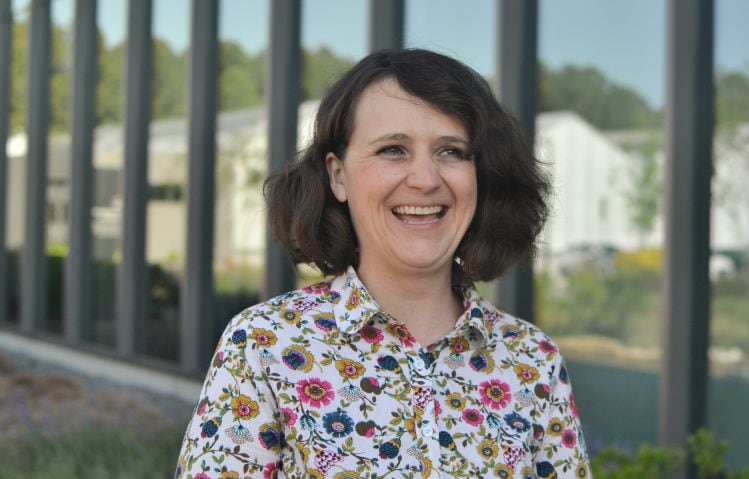
'No downstream purification steps are needed'
So what does the bioreactor look like and how does it work?
According to Strickland: “The cells grow in a monolayer and pull in nutrients on one side and push milk out the other side in a way we can extract it, so no downstream purification steps are needed.”
The bioreactor is proprietary, she said, “but essentially we’re trying to get as much surface area as possible, so think of a lot of tubes.”

